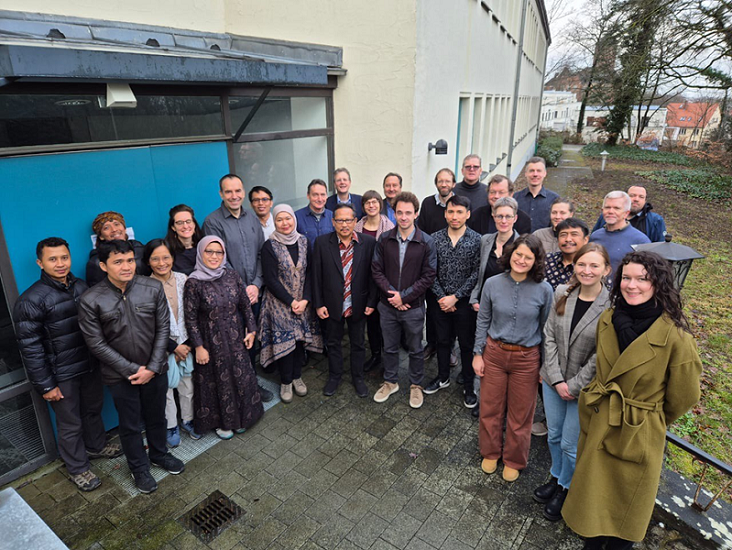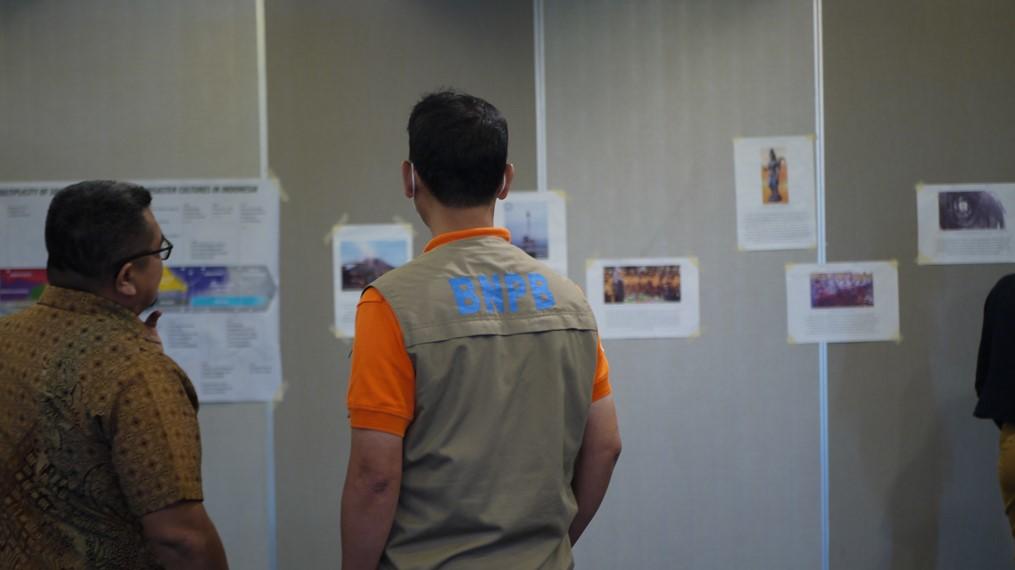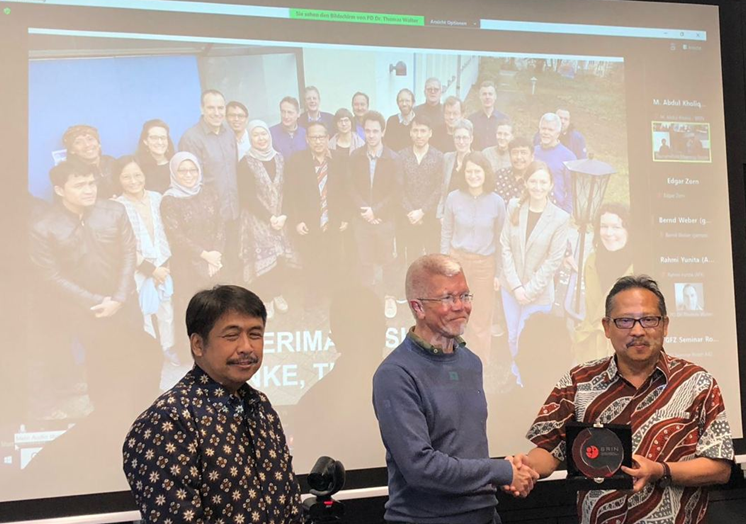Closing event of the TSUNAMI_RISK project on non-seismically induced tsunamis in Indonesia
News from Feb 26, 2024
From 18 to 20 February 2024, the final event of the TSUNAMI_RISK project "Multi-risk assessment and cascading effects analysis conducted as part of a cooperation between Indonesia and Germany - Joint research on tsunamis induced by volcanoes and landslides" took place at the German Research Centre for Geosciences (GFZ) in Potsdam. Around 30 participants from Germany and Indonesia were present, including representatives of the German Federal Ministry of Education and Research, the Universitas Gadjah Mada in Yogyakarta, the Indonesian national research institution BRIN and the tsunami warning centre of the disaster control authority BMKG in Indonesia. Isabelle Desportes, Luzia Schleip (a student at the Free University of Berlin who wrote her Master's thesis as part of the project) and Prof Martin Voss took part from the KFS. In addition, some participants joined online, for example from Universitas Indonesia and Universitas Bandar Lampung.

Participants of the TSUNAMI_RISK closing event in Potsdam. Source: TSUNAMI_RISK 2024.
Project results from Germany and Indonesia were presented at the event. KFS employee Dr Isabelle Desportes presented the results from the social science work package of TSUNAMI_RISK, on which the KFS as well as various employees of the German Federal Agency for Technical Relief and Harald Spahn had conducted research. Among the highlights of the work package on socio-cultural aspects of dealing with risks was the travelling exhibition on 'Disaster*Cultures in Indonesia', which had also been exhibited at BMKG in Jakarta, and results on the geoscience-policy nexus, which were prepared in cooperation with BRIN and published in the Words into Action series of the United Nations Office for Disaster Risk Reduction.

'Disaster*cultures in Indonesia' travelling exhibition. Source: Desportes 2022.
On the meeting also the recommendations for action to better prepare for non-seismically induced tsunamis in Indonesia were finalised. The high-level recommendations for policy makers emphasize the need to clarify institutional mandates and budgets, particularly through evidence-based revisions of Presidential Decree 93/2019, to facilitate cross-institutional collaboration. Developing common strategies for monitoring high-risk tsunamigenic source areas is crucial, leveraging advanced technologies and community-based solutions like Inexpensive Sea-Level Monitoring Devices. Additionally, enabling multi-hazard mapping, empowering communities with resources and capacity-building programs, and fostering open cross-sectoral and international research cooperation are highlighted to enhance tsunami preparedness and response efforts in Indonesia. Two supplements, namely a technical supplement for researchers and disaster agency staff and one community supplement to increase tsunami preparedness at the local level, provide more detailed recommendations for targeted audiences.

Gift presentation from Pak Ocky of BRIN to Prof Martin Voss of KFS. Source: Rafliana 2024.
Finally, the event participants discussed the next steps with regard to policy recommendations and future research. BRIN officials offered the German project partners gifts as token of appreciation for the productive cooperation over the last few years – yet, this is not the end!